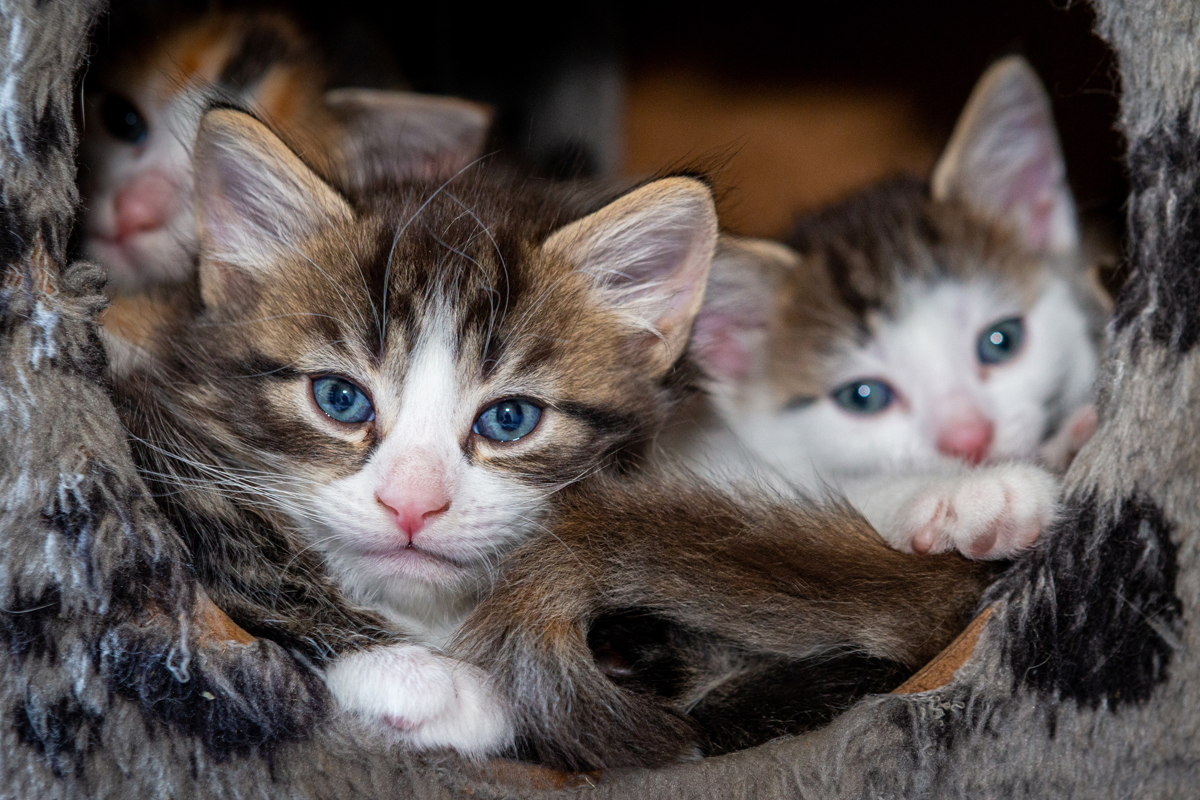
By Muriel Cooper Photos Gary Sissons & Supplied
Look at that cute face – those eyes! Why is it that cats get such a bad rap for being – well – catty? Kelly Davidson from the cat rescue organisation Meow Rescue has some answers and wants to dispel those myths.
In 2018 nurse Kelly and three friends, Louise Cook, a veterinary nurse, Kylie Harris and Tiff Edwards, all with different backgrounds in animal rescue, decided to come together and do something to make a difference in the community. They put in $250 each and formed Meow Rescue. It’s now grown into a not-for-profit organisation with fantastic volunteers and foster carers that has found forever homes for many hundreds of cats and kittens.
Kelly says smaller animal rescue organisations are the backbone of the rescue community.
“We’ve found homes for many cats and kittens that were considered unadoptable and bound for euthanasia.” Cats with special needs such as diabetes or seizures can live long and happy lives with proper care and attention.
So why do cats get such a bad rap? The irrational superstition about black cats still persists, and Kelly says they are often the last to be adopted and the first to be euthanised. But cats also have a reputation for being distant and fickle. Is that really true?
Anthrozoologist at Bristol University in the UK, John Bradshaw, in his book ‘Cat Sense: How the New Feline Science Can Make You a Better Friend to Your Pet’, says cats, like humans, can hold a grudge.
But he said they do apologise. How? Here is what to look out for:
- Approaching you (it’s a little gesture, but it means they feel safe)
- Head butting and rubbing
- Purring
- Blinking slowly
Cats have more complex emotions and emotional needs than you might think. They can form strong emotional bonds just like humans or dogs and do so in the wild, where mother cats will often raise kittens together in groups.
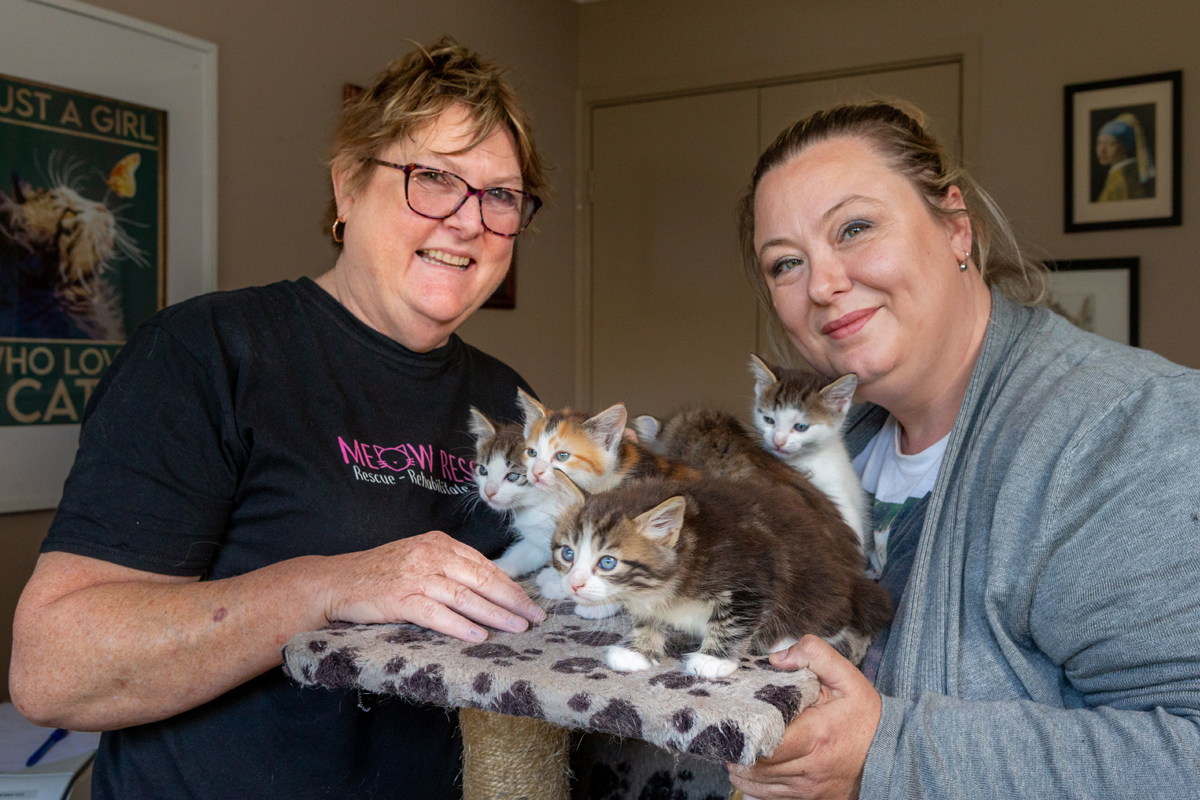
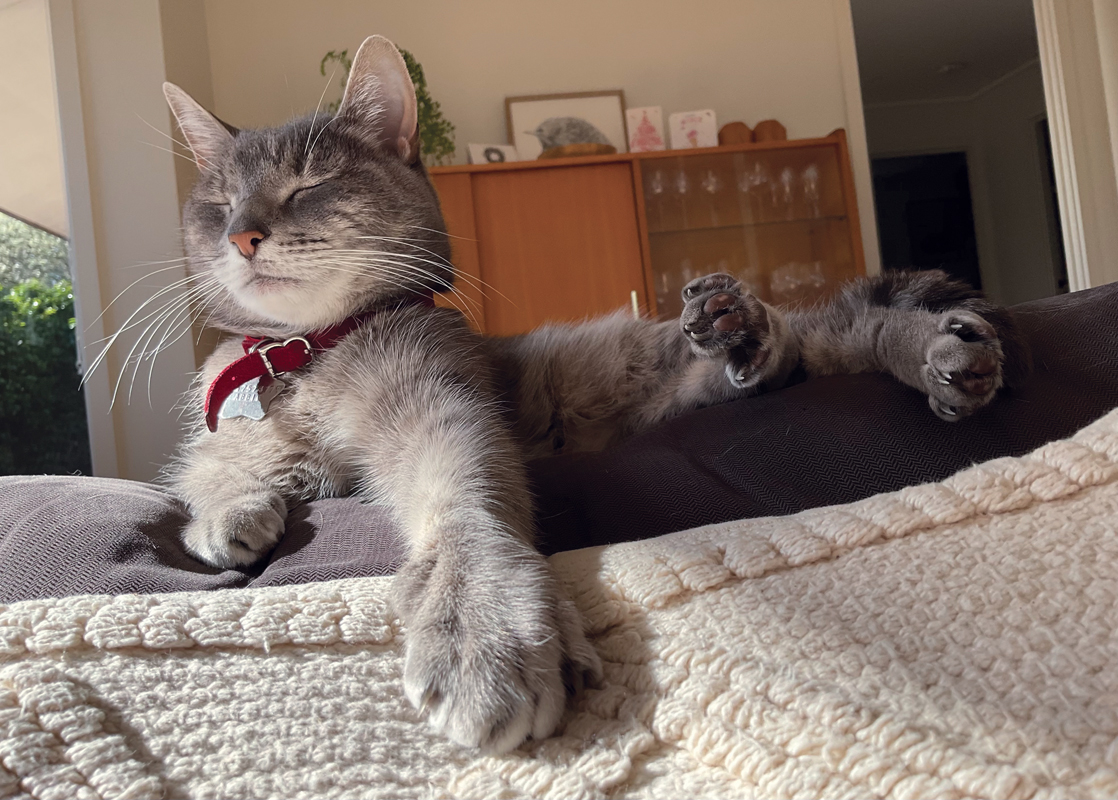
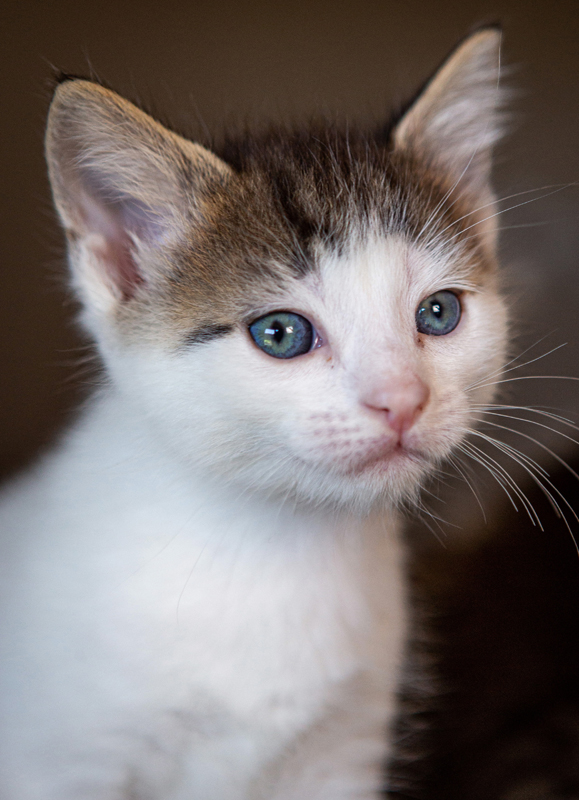
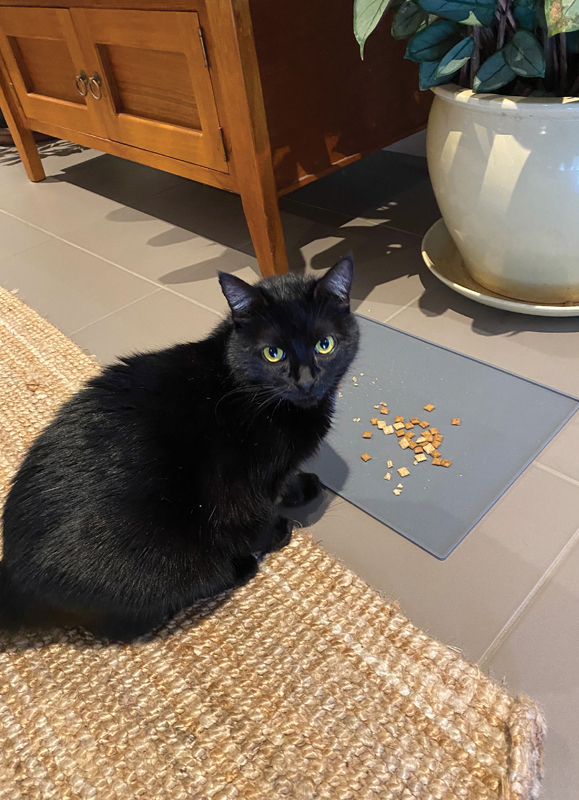
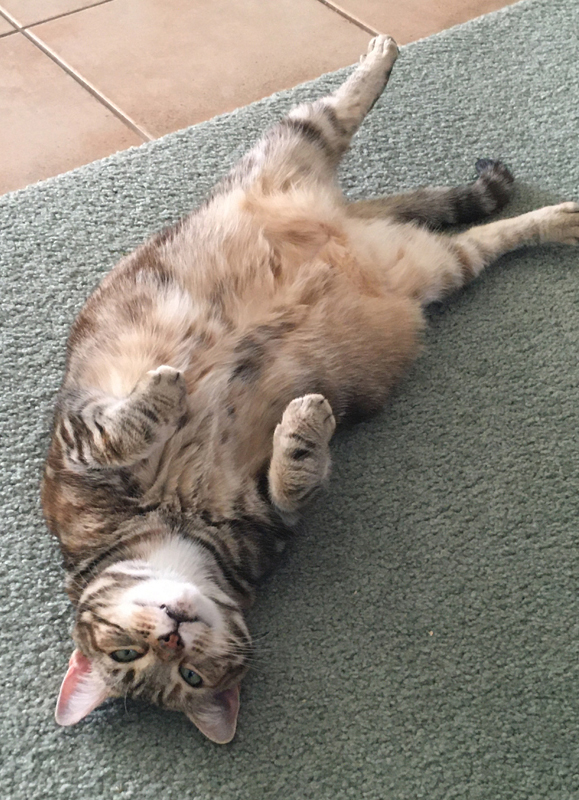
They still have strong instincts to hunt, and we’ve encouraged that in them for thousands of years as mouse catchers. In evolutionary terms, it’s a bit much to expect them to change overnight. Meow Rescue is excellent at identifying good mousers and will often advertise a cat as a ‘Barn Cat’ to keep rodents down for farmers.
Like other preconceived notions about them, cats do have a conscience and feel guilt or remorse. Kelly says, ‘When my cats knock something off the counter, they go running.’ So how do you discipline a cat? Kelly says setting boundaries and positive reinforcement is the key, “Not banging or yelling or instilling fear, That won’t get the best from any pet. You can train a cat just like you train a dog.”
Once you care for them the way a kitty needs to be cared for, you’ll form a bond with your cat that will be intensely rewarding.
How to have a happy cat? Cats need safety and look to their humans for it in the same way they would look to their groups in the wild. Kelly says, ‘They need to feel comfortable, safe and loved. Providing for their needs, including enriching activities like a scratching post, yummy food, love and cuddles, will help to keep your cat safe indoors as well. Cat enclosures help them experience the outdoors while keeping them safe and out of trouble, as will simply keeping the doors closed. Cats are more inclined to stray when they aren’t desexed, as they will go looking for a partner when they are in heat.’ Because of this, Meow Rescue usually has extra kittens to take care of in the new year.
Is there any harm in a bit of catnip? No. Kelly doesn’t know how it works, but it makes ‘happy hormones in their head.’ Can they have too much? No to that too. No need, as Kelly says, for a ‘Catnip detox centre.’
Cats, like other companion animals, are not only a delight; they’re an investment in your good health. You could find yourself less depressed, coping with grief better, and making new friends and connections. Especially if you teach your cat to walk on a lead and take it for walks around the neighbourhood. Your blood pressure might go down too.
Companion animals played a role in relieving people’s stress and loneliness during Covid-19. Meow Rescue, like other animal welfare organisations, is still seeing the aftermath, with an increase in the number of surrendered animals. This is often due to hasty and poor choices, including buying kittens on the internet that are not desexed. People have found themselves with not one pet but a whole litter. Meow Rescue can take the kittens and desex the mother cat free of charge so she can return to a safe home. Buying only neutered cats from the likes of Meow Rescue will help solve the problem.
Kelly tells of a cat about to have kittens wandering by chance into the home of one of their foster carers. What a great synchronicity. Perhaps it’s their sixth sense, or, as Kelly says with a smile, “Perhaps they just smelled the extra cat food.”
The organisation is completely staffed by volunteers, and foster caring is not the only way to help. One volunteer, on retiring, decided to volunteer her time as an administrator.
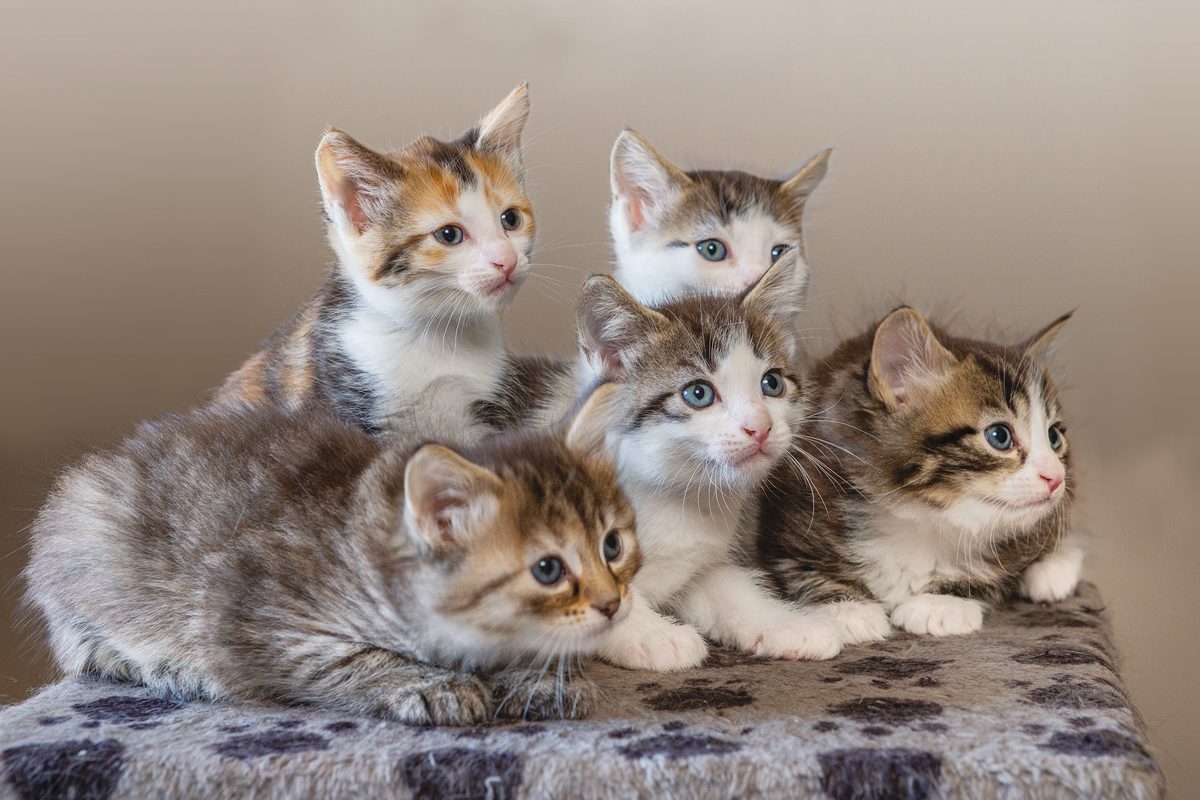
She changes microchipping details and keeps their database up to date. Kelly says, “She is amazing and a lifesaver for us, giving us valuable time to spend on other things.”
You can volunteer to transport animals to and from foster care, volunteer time on adoption day, to man stalls on market day and for fundraising events. Foster carers are always appreciated.
Meow Rescue helps in other ways with community food banks, donating food and litter within the community, especially during Covid-19, and having desexing days where cats can be neutered.
Meow Rescue has cats and kittens ready for adoption on the Peninsula. If you’d like to enquire about a cat or kitten for adoption, volunteer for Meow Rescue, have an animal to surrender or donate to the cause, contact Meow Rescue.
P: 0414 429 336
